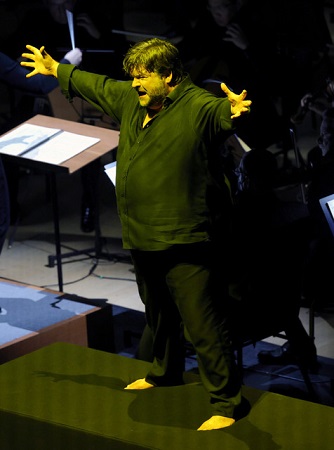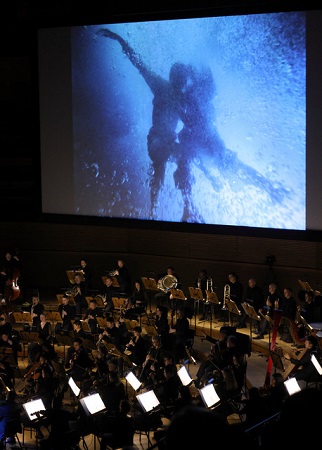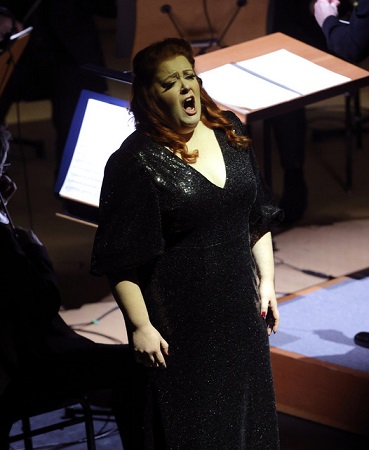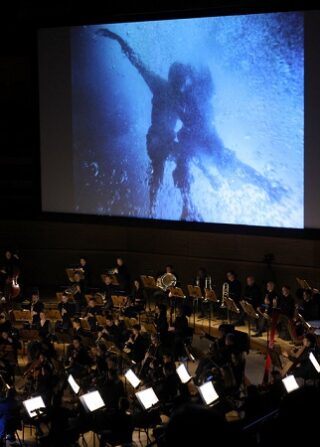 United States Wagner, Tristan und Isolde: Soloists, Los Angeles Master Chorale, Los Angeles Philharmonic Orchestra / Gustavo Dudamel (conductor). Walt Disney Concert Hall, Los Angeles, 15-17.12.2022. (LV)
United States Wagner, Tristan und Isolde: Soloists, Los Angeles Master Chorale, Los Angeles Philharmonic Orchestra / Gustavo Dudamel (conductor). Walt Disney Concert Hall, Los Angeles, 15-17.12.2022. (LV)

Production:
Director – Peter Sellars
Visual artist – Bill Viola
Executive producer, video – Kira Perov
Video operator – Alex MacInnis
Lighting – Benjamin Zamora
Artistic director, Los Angeles Master Chorale – Grant Gershon
Cast:
Tristan – Michael Weinius
Isolde – Miina-Liisa Värelä
Kurwenal – Ryan Speedo Green
Brangäne – Okka von der Damerau
King Marke – Eric Owens
Melot – Robert Stahley
Shepherd – Arnold Livingston Geis
Steersman – Ryan Wolfe
After attending Gustavo Dudamel’s first Tristan und Isolde, staged one act per night as part of the Tristan Project, one can only imagine the impact of seeing all three acts on a single night when he returns to the Paris Opera in January to lead seven performances of this production. In Los Angeles – with a cast of brilliant acting singers, the Tristan legend of impossible love and the glorious music – it was a showcase for the kinds of intense operatic experiences that can be achieved with integrated multi-sensual productions built over established favorites.
Based on the audience’s response each night, the Tristan Project is as close to a World Cup final as the operatic world is likely to get. From the losers’ point of view, of course. And while Bill Viola’s immersive vision from 2004 may feel dated by the emergence over two decades of new technology feeding the video culture, its raw fantasy was an elemental, detailed response to the legend in synch with Wagner’s music.

The hugeness of the video apparatus rendered the singers somewhat anonymous and made it the star of the show although the music retained its primacy, especially with the Los Angeles Philharmonic in the center of things on stage. The strings were dazzling, the cellos particularly so with their razor-sharp passionate virtuosity, the winds sang brilliantly in gorgeous timbres and the brass were relentlessly golden and virtuosic. When the orchestra needed to surge together, they did so in sweeping phrases of wide dynamic range. Dudamel’s conducting was intense in a meandering sort of way, as if he too was sometimes distracted by Isolde’s nipples and other elements on the giant silver screen. It could have been a ‘Cirque de Tristan’, but in his hands it was more delicately wrought, like Peter Brook’s A Midsummer Night’s Dream.

Director Peter Sellars heightened and relieved to some extent the monotony of the opera’s conversational aspects by having the singers mostly sit on a long black couch (aside from occasionally standing sentry in the wings and balconies). It was obviously useful for the love scenes but unexpectedly powerful when King Marke (Eric Owens) confronted Tristan (Michael Weinius), and the hero held his head in his hands with grief and shame – and yet there they were, sitting next to each other as if on a park bench. It reduced the terrible majesty of the king-champion relationship to that of a father-son relationship, which made the weight of the betrayal more human and more crushing.
The cast – a quartet of whom will travel to Paris – was formidably well-equipped throughout to handle the demands that Wagner and the production put on them and so well-matched that their voices set against Dudamel’s iconic inner voicing made them an organic part of the orchestral fabric. Miina-Liisa Värelä’s blazing Isolde (Mary Elizabeth Williams in Paris) and Okka von der Damerau’s golden Brangäne were a striking example of this. Michael Weinius’s Tristan was ferociously solid in a Wagnerian equivalent of smoldering, and Eric Owens’s King Marke was Lear-like in his awful majesty. How all Dudamel’s singers respond when they have to sing the entire opera in one night in Paris should prove a highlight of the season.
Laurence Vittes
